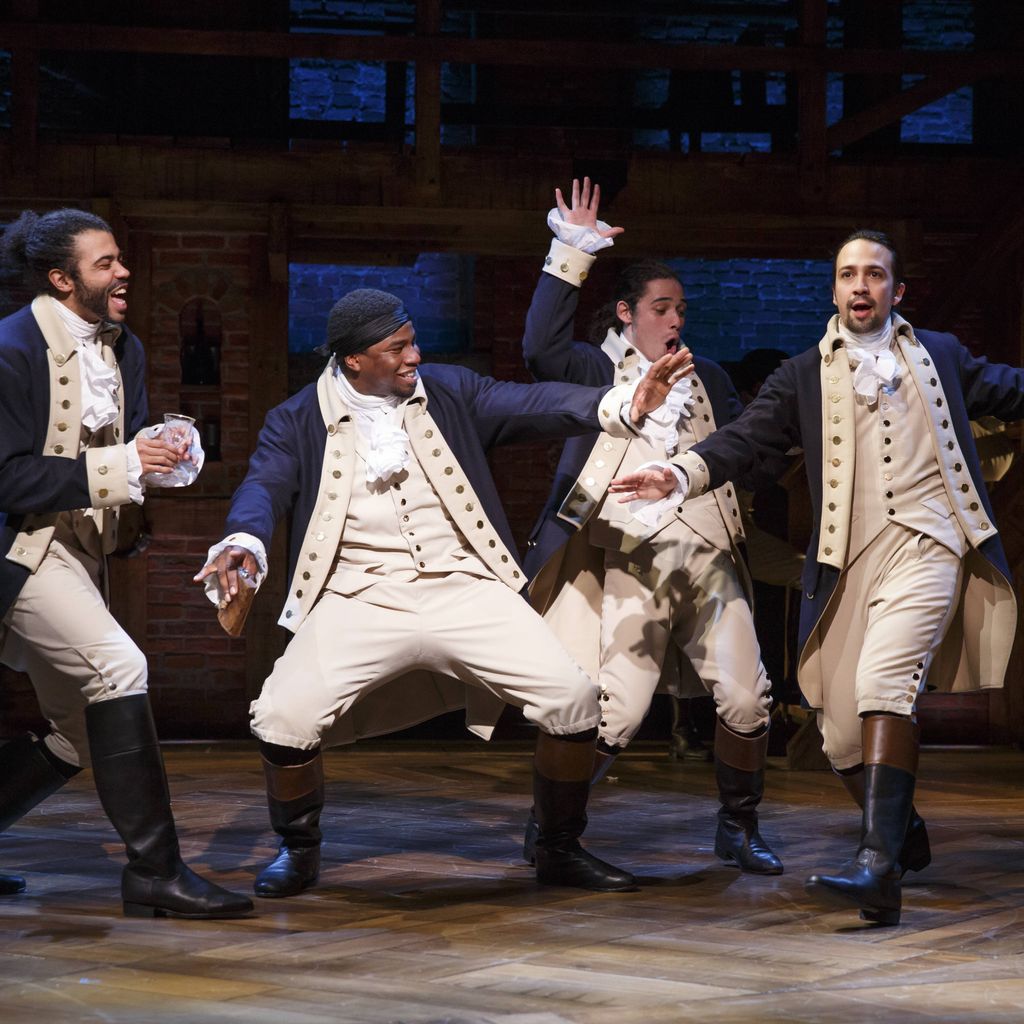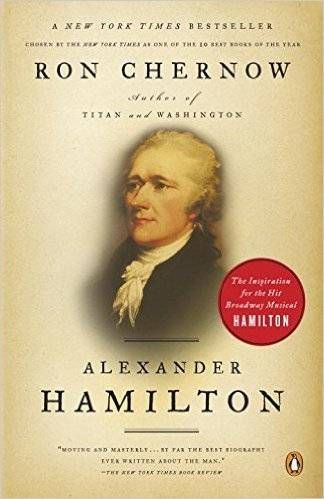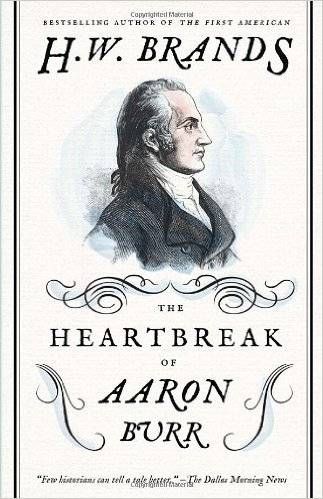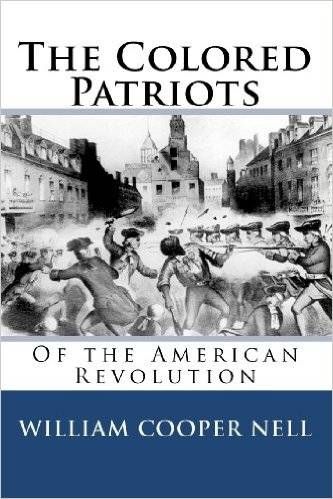
What to Read Now That You’ve Heard HAMILTON
I had a pretty great American history teacher in high school. He taught American history because he liked interesting people, and he was a story-teller. He would sit in his rolling desk chair and wheel around the room, pounding on students’ desk for emphasis, as he told us about smallpox blankets, Thomas Jefferson and Sally Hemmings, the giants of the Industrial revolution, Vietnam. I remember distinctly him telling us about the duel between Hamilton and Burr, how Hamilton pointed his gun at the sky and Burr shot him anyway. I remember being heartbroken over Hamilton, but not really understanding what was worth dying for. (This is not a knock on my teacher. I had a lot of important things taking up my 15-year-old brainspace.) I considered doing more research, but also I had lunch the next period, so.
Fast forward a few years later, and the Internet is yelling about its favorite new musical. I don’t always agree with the greater Internet, but I usually give its favorites a chance, so I listened to NPR’s stream of Hamilton, the new musical by Lin-Manuel Miranda. And I was hooked. The people! The stories! This was the technicolor American history I remembered from my high school class, but with singing! And rapping! And an Aaron Burr with the voice of a Revolutionary angel! (The NPR stream is over, but you can listen to it on Spotify or buy it wherever historical musical phenomenons are sold.)
After listening to the musical a couple hundred times, it became necessary to brush up on my Revolutionary history. I need to do that research I neglected in high school. I need to know more about these people, so I put together a list of books to read in order to get the full backstory on Hamilton and friends.

Oh Aaron Burr, the villain in our history books, how I hated you in high school, and how complicated are my feelings about you now that you have a voice that is like melted butter on the Liberty Bell on a hot day in Philadelphia. “Talk less, smile more” isn’t really a terrible philosophy, is it? As long as you don’t kill your friend? Maybe you shouldn’t have killed your friend. For a full picture of our unhero, I found two biographies. The first is Fallen Founder: The Life of Aaron Burr, a pro-Burr, sir, biography defending him as a feminist and a powerful politician. The historian doesn’t mention Burr’s singing voice, oddly.

The women of the musical, Angelic-AHHHH, Ee-LI-ZAAA, (and Peggy), The Schuyler Sisters, don’t have their own biographies. I consulted an expert, and she recommended Ladies of Liberty by Cokie Roberts. This has only a handful of pages on Eliza and less on Angelica, but should be an excellent look at the lives of the women of the Revolution.
I have always wanted to know more about America’s Favorite Frenchman, Lafayette, so I was delighted to see that Sarah Vowell, America’s Favorite NPR Historian, has a book out about him this month, Lafayette in the Somewhat United States. Vowell’s quirky, sometimes sardonic voice will be the perfect follow up to the musical.
The Jefferson portrayed in Hamilton was not the intellectual hero I’m used to seeing, so I thought I’d include two biographies here which categorically disagree on the man: Master of the Mountain, a highly critical look at Jefferson and his relationship with his slaves, and The Hemingses of Monticello, a more sympathetic look at the relationship between Jefferson and Sally Hemmings. Annette Gordon-Reed, author of Hemingses, wrote a scathing review of Master of the Mountain, and Master includes footnotes calling Reed’s book “misleading.” I don’t know, I just think Hamilton would appreciate me including both conflicting books here. That’s what Jefferson gets for spending the whole war in France.

Hamilton wrote some of the most important documents of the American Revolution, so it would be a shame not to dip into some primary sources. I skimmed The Reynolds Pamphlet over lunch one day, and it is great if you want to be furious with our hero. (“Some conversation ensued which made it quickly apparent that other than pecuniary consolation would not be unacceptable.” HAMILTON. YOU STOP THAT.) You should probably go listen to “It’s Quiet Uptown” to feel better after you read that.
And now, ladies and gentlemen, HERE COMES THE GENERAL. It seems only appropriate to go back to Ron Chernow to read his biography of Hamilton’s mentor, the pride of Mount Vernon, George Washington: Washington: A Life. So much of the musical is dedicated to Hamilton wondering about his legacy, if his story will be told and if people will listen. It seems a bit cheese-ball to end with the words from the close of the musical, but, hey, Alexander Hamilton, 211 years later, people are still telling your story and looking for more.











